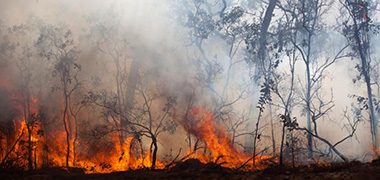
This role has a moderate level of AI exposure. AI can enhance efficiency for some tasks, but this job still relies on human skills and decision-making.
Explore all careersAn Earth Scientist studies the Earth's physical properties and processes, analysing data and collaborating with others to address environmental challenges.
Get qualified to work as an Earth Scientist with a course recognised across Australia. Speak to a training provider to learn more.


Browse occupations related to Earth Scientist



For those interested in pursuing a career in the Earth Sciences, Albany, located in the stunning Great Southern region of Western Australia, offers an array of Earth Scientist courses. These courses are tailored for experienced learners and can help you deepen your expertise in this vital field. Among the available options, you may consider enrolling in the Bachelor of Science (Earth Science), the Bachelor of Science (Geology), or the Bachelor of Science (Environmental Science). Each of these courses offers a robust curriculum designed to equip students with the necessary skills and knowledge to excel in various Earth science disciplines.
In Albany, these Earth Scientist courses are primarily delivered by respected training providers, including UWA, which offers the Bachelor of Science (Geology). With its focus on research and industry engagement, UWA stands out as an excellent institution to develop your understanding of geological processes and their applications in real-world scenarios. As you progress through your studies, you will not only learn theoretical concepts but also gain practical experience in the field.
Graduates from Earth Scientist courses in Albany can explore various career paths within the earth sciences sector. Notable job roles include Geophysicist, Hydrologist, Geologist, Hydrogeologist, Geochemist, Palaeontologist, Geoscientist, Physical Scientist, and GIS Specialist. These roles play a critical part in understanding and managing our natural resources, ensuring sustainable practices in various industries.
By choosing to study Earth Scientist courses in Albany, students are not only investing in their education but also in the future of environmental stewardship and resource management. The local area, enriched with diverse geological features, provides an ideal backdrop for field studies, enhancing the learning experience and enabling students to connect theoretical knowledge with practical applications.
Whether you are eager to conduct research, make impactful decisions in environmental policy, or engage in resource exploration, Albany offers the courses and support to help you achieve your career ambitions. Discover the potential of the Earth Sciences by enrolling in one of the available programs and embarking on a fulfilling career that contributes positively to both society and the environment.